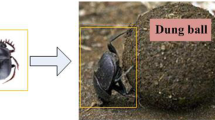Abstract
In this article, we suggest a new method to improve the harmony search meta-heuristic algorithm. Several approaches are presented for improving the harmony search algorithm. These approaches consider different values for initial parameters in each optimization problem. Differences between the proposed algorithm and the harmony search algorithm are as follows. First, we add a new step to create a new harmony vector, which increases the accuracy and convergence rate and reduces the impact of the initial parameters in achieving an optimal solution. Second, we set introduce a parameter called bandwidth (bw), which is an important factor with great influence on the convergence rate toward optimal solutions. To prove the efficiency and robustness of the proposed algorithm, we argument about statistical analysis of proposed algorithm and examine it through a variety of optimization problems, including constrained and unconstrained functions, mathematical problems with high dimensions and engineering and reliability problems. In all of these problems, the convergence rate and accuracy of the answer are equal to or better than other methods. In addition, in our proposed method, the effect of initial parameters has been reduced with respect to the optimal solution.
Similar content being viewed by others
References
Chen TC (2006) IAs based approach for reliability redundancy alposition problems. Appl Math Comput 182(2): 1556–1567
Coelho LS (2009) An efficient particle swarm approach for mixed-integer programming in reliability–redundancy optimization applications. Reliab Eng Syst Saf 94(4): 830–837
Coello CAC (2000) Use of a self-adaptive penalty approach for engineering optimization problems. Comput Ind 41(2): 113–127
Colville AR (1968) A comparative study of nonlinear programming. IBM New York Scientific Center, Tech. Report No. 320-2949
Deb K (2000) An efficient constraint handling method for genetic algorithms. Comput Methods Appl Mech Eng 186: 311–338
Dhingra AK (1992) Optimal apportionment of reliability and redundancy in series systems under multiple objectives. IEEE Trans Reliab 41(4): 576–582
Dixon LCW, Szego GP (1975) Towards global optimization. North Holland, Amsterdam
Eason ED, Fenton R (1974) GA comparison of numerical optimization methods for engineering design. ASME J Engrg Ind 96(1): 196–200
Fesanghary M, Mahdavi M, Minary-Jolandan M, Alizadeh Y (2008) Hybridizing harmony search algorithm with sequential quadratic programming for engineering optimization problems: harmony search theory and practice. Comput Methods Appl Mech Eng 197: 3080–3091
Fogel DB (1995) A comparison of evolutionary programming and genetic algorithms on selected constrained optimization problems. Simulation 64(6): 399–406
Geem ZW (2008) Novel derivative of harmony search algorithm for discrete design variables. Appl Math Comput 199: 223–230
Geem ZW, Kim JH, Loganathan GV (2001) A new heuristic optimization algorithm: harmony search. Simulation 76(2): 60–68
Gen M, Yun YS (2006) Soft computing approach for reliability optimization: state-of-the-art survey. Reliab Eng Syst Saf 91(9): 1008–1026
Golinski J (1970) Optimal synthesis problem solved means of nonlinear programming and random methods. J Mech 5: 287–309
Golinski J (1973) An adaptive optimization system applied to machine synthesis. Mech Mach Theory 8: 419–436
Hikita M, Nakagawa H, Harihisa H (1992) Reliability optimization of systems by a surrogate constraints algorithm. IEEE Trans Reliab 41(3): 473–780
Homaifar A, Lai SHV, Qi X (1994) Constrained optimization via genetic algorithms. Simulation 62(4): 242–254
Hsieh YC, Chen TC, Bricker DL (1998) Genetic algorithm for reliability design problems. Microelectron Reliab 38: 1599–1605
Jaberipour M, Khorram E (2010) Two improved armony searchalgorithms for solving engineering optimization problems. Commun Nonlinear Sci Numer Simulat (in press)
Lee KS, Geem ZW (2004) A new meta-heuristic algorithm for continues engineering optimization: harmony search theory and practice. Comput Methods Appl Mech Eng 194: 3902–3933
Li HL, Papalambros P (1985) A production system for use of global optimization knowledge. ASME J Mech Transm Autom Des 107: 277–284
Mahdavi M, Fesanghary M, Damangir E (2007) An improved harmony search algorithm for solving optimization problems. Appl Math Comput 188: 1567–1579
Omran MGH, Mahdavi M (2008) Global-best harmony search. Appl Math Comput 198: 643–656
Prasad VR, Kuo W (2000) Reliability optimization of coherent systems. IEEE Trans Reliab 49(3): 323–330
Ragsdell KM, Phillips DT (1976) Optimal design of a class of welded structures using geometric programming. ASME J Engrg Ind Ser B 98(3): 1021–1025
Reklaitis GV, Ravindran A, Ragsdell KM (1983) Engineering optimization methods and applications. Wiley, New York
Rosenbrock HH (1960) An automatic method for finding the greatest or least value of a function. Comput J 3(3): 175–184
Sandgren E (1990) Nonlinear integer and discrete programming in mechanical design optimization. J Mech Des ASME 112: 223–229
Shi Y, Eberhart RC (1998) A modified particle swarm optimizer. In: Proceedings of the international congress on evolutionary computation. Piscataway
Wang CM, Huang YF (2010) Self-adaptive harmony search algorithm for optimization. Expert Syst Appl 37: 2826–2837
Wu SJ, Chow PT (1995) Genetic algorithms for nonlinear mixed discrete-integer optimization problems via meta-genetic parameter optimization. Engrg Optim 24: 137–159
Yokota T, Gen M, Li HH (1996) Genetic algorithm for nonlinear mixed-integer programming problems and its application. Comput Ind Eng 30(4): 905–917
Zou D, Gao L, Wu J, Li S, Li Y (2010) A novel global harmony search algorithm for reliability problems. Comput Ind Eng 58: 307–316
Author information
Authors and Affiliations
Corresponding author
Rights and permissions
About this article
Cite this article
Sarvari, H., Zamanifar, K. Improvement of harmony search algorithm by using statistical analysis. Artif Intell Rev 37, 181–215 (2012). https://doi.org/10.1007/s10462-011-9226-x
Published:
Issue Date:
DOI: https://doi.org/10.1007/s10462-011-9226-x




